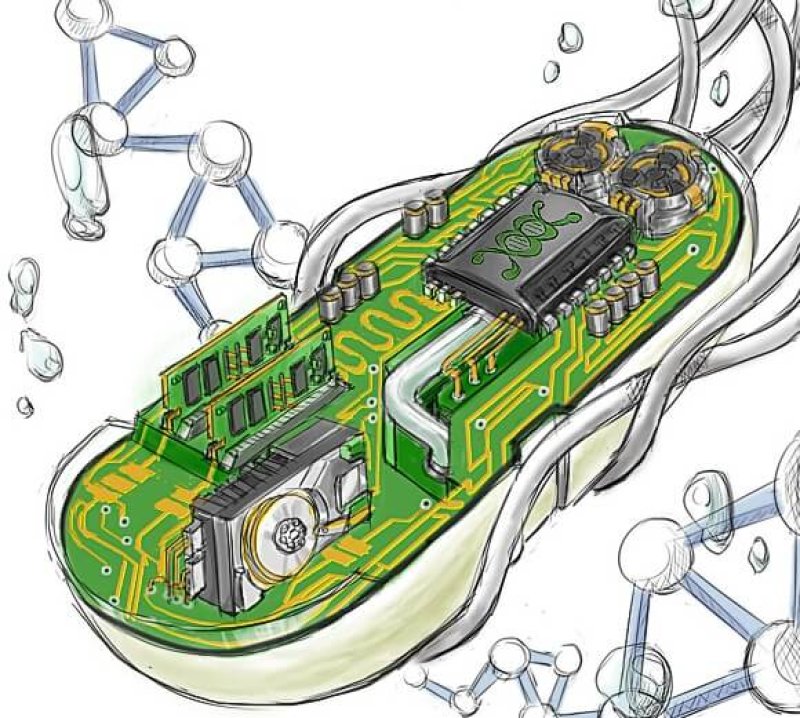A German team headed by Dr. Edward Lemke at the European Molecular Biology Laboratory described an entirely synthetic organelle inside living cells in Science [March 29]. With roots in nature, these artificial factories nevertheless explode the capabilities of normal cells by overhauling the basic genetics of life. Super-cells equipped with these organelles not only process normal DNA letters—A, T, C, G—into natural proteins; they’re also capable of expanding the genetic code and using designer building blocks to construct entirely new proteins without interfering with the cell’s normal functions.
“This basically achieves a cell which simultaneously uses two distinct genetic codes for different proteins it produces,” Lemke and his colleagues, Christopher Reinkemeier and Gemma Estrada Girona told Singularity Hub.
That’s not even the crux. In theory, the strategy could work to concentrate any designer function into cells. Because the concept doesn’t disrupt a cell’s normal way of life, the team believes that scientists can now engineer custom compartments that execute completely synthetic tasks inside cells—such as pumping out life-saving drugs, biofuels, or encoding artificial photosynthesis.
“We can now start dreaming of designing all types of organelles to equip cells with new functions,” they said.
Read full, original post: Synthetic Cell Component Expands the Code of Life in Complex Cells































